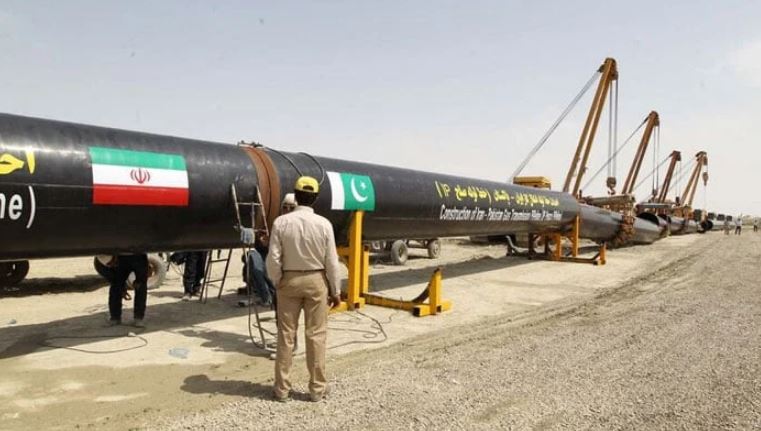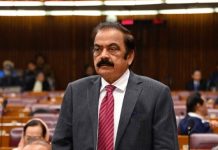Staff Report
ISLAMABAD: Pakistan and Iran have agreed to establish a joint task force to address challenges in the implementation of the Iran-Pakistan gas pipeline project.
The agreement came during a meeting between Iranian President Masoud Pezeshkian and Pakistani Prime Minister Shahbaz Sharif on the sidelines of the United Nations General Assembly in New York.
Reports indicated that the establishment of the joint task force was a promising step towards deepening bilateral economic relations.
The report also highlighted a mutual vision to strengthen ties between the two neighboring countries.
The leadership discussions between Pakistan and Iran reflected a strong commitment to overcoming common challenges.
Moreover, the establishment of a broader road and rail network connecting regional countries was also seen as a positive development.
Earlier, Pakistan’s Foreign Minister Ishaq Dar said Tuesday his country will not back off from building a much-delayed gas pipeline with Iran. “We will not let anyone use their veto,” Dar said at a press briefing Tuesday, without naming the United States.
Pakistan and Iran signed a Gas Sales and Purchase Agreement in June of 2009 for a pipeline that would supply 750 million to 1,000 million cubic feet per day of gas to energy-starved Pakistan from Iran’s South Pars Field.
While Iran claimed in 2011 that it had completed its side of the pipeline, construction delays continue on the Pakistani side, primarily for fear of invoking U.S. sanctions.
The Biden administration has repeatedly said it does not support the Pakistan-Iran pipeline as Tehran is under U.S. sanctions for its nuclear program.
“The government will decide what, when, and how to do anything based on Pakistan’s interests. It cannot be dictated to us,” Pakistan’s foreign minister told reporters in Islamabad.
In February, Pakistan’s outgoing caretaker government approved building a small patch of the pipeline from the Iranian border into Pakistani territory to avoid billions of dollars in penalties for project delays.
Prime Minister Shehbaz Sharif’s government, which took office in March, has not begun construction on the project.
The pipeline received only a passing mention in a lengthy joint statement issued at the end of Iranian President Ebrahim Raisi’s visit to Pakistan in late April, prompting speculation the project was not on track.
“We have to watch our interest. We have to look at our commitments,” Dar said, rejecting the notion Pakistan was delaying the project under U.S. pressure. However, he conceded the pipeline is “an issue that is quite complicated.”



